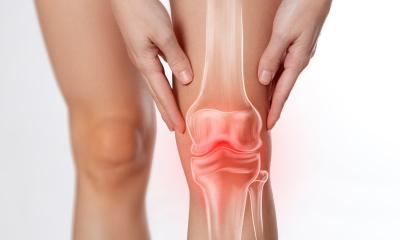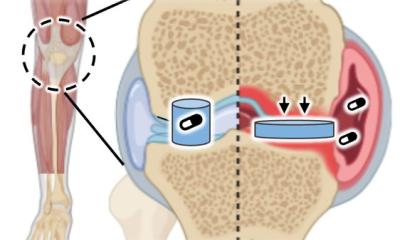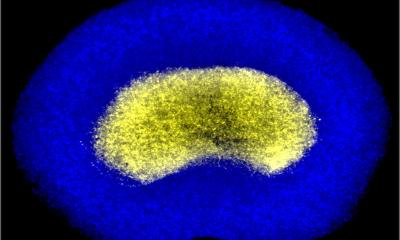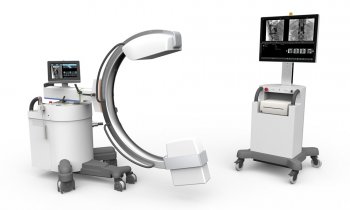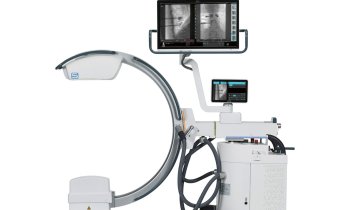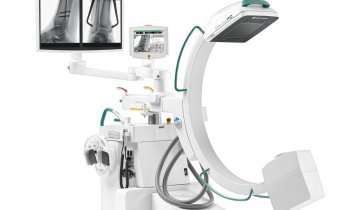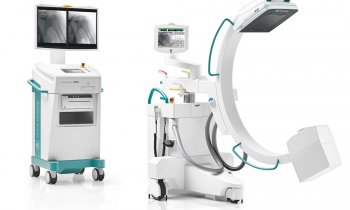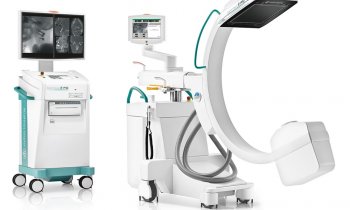Video • Innovative approach
Osteoarthritis: Nasal cartilage relieves knee pain
Cartilage cells from the nasal septum can not only help repair cartilage injuries in the knee, they can also withstand the chronic inflammatory tissue environment in osteoarthritis and even counteract the inflammation – according to researchers from the University of Basel and the University Hospital Basel.
A research team at the Department of Biomedicine of the University of Basel and the University Hospital of Basel is cultivating cartilage tissue from cells of the nasal septum to repair articular cartilage in the knee. The team led by Professor Ivan Martin and Professor Andrea Barbero has already succeeded in doing this in initial clinical studies on isolated cartilage damage, and they have now reported that the approach could also be suitable for degenerative joint diseases such as osteoarthritis. Their findings have been published in the journal Science Translational Medicine.
Osteoarthritis is associated with cartilage degradation, which can cause severe pain and reduce mobility. The therapeutic approach up to now aims at palliative treatment of the inflammation and pain until a knee joint replacement by a prosthetic implant becomes unavoidable. Joint prostheses, however, have a limited durability, which makes the treatment problematic, especially in younger patients.
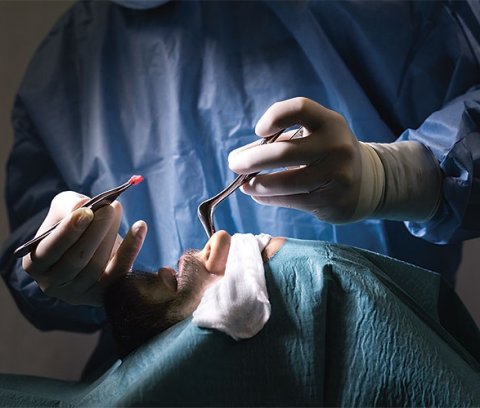
Image source: University of Basel, Christian Flierl
A possible alternative could be to repair the articular cartilage using engineered cartilage tissue. To this end, the research team, in collaboration with orthopedic and plastic surgeons from the University Hospital of Basel, takes a tissue sample from a patient’s nasal septum, cultivates the isolated cartilage cells and uses them to grow a cartilage layer that is then surgically implanted into the knee joint. Unlike traumatic and confined cartilage defects, for example following sports injuries, the tissue environment in the osteoarthritic knee is characterized by persistent inflammatory reactions. “First we had to test whether the cartilage replacement was attacked and degenerated by the inflammatory factors,” explains Ivan Martin.
The researchers led by Professor Martin’s doctoral student Lina Acevedo Rua, project leader Dr. Karoliina Pelttari and orthopedic surgeon Dr. Marcus Mumme initially tested the cultured human cartilage tissue in the presence of inflammatory factors in various models in the laboratory and in small experimental animals. They then tested the durability of the cartilage tissue under simultaneous inflammatory and mechanical stress, using cartilage cells from the nose of sheep in the osteoarthritic knee joint of the same animals. The results of the animal experiments were encouraging – not only did the tissue engineered from nasal cartilage cells prove to be extremely robust, it also seemed to counteract the inflammatory reactions. Further analysis revealed that this effect could be due to the fact that a molecular signaling pathway that is chronically upregulated in osteoarthritis (the WNT signaling pathway) was repressed by the presence of the nasal cartilage cells.
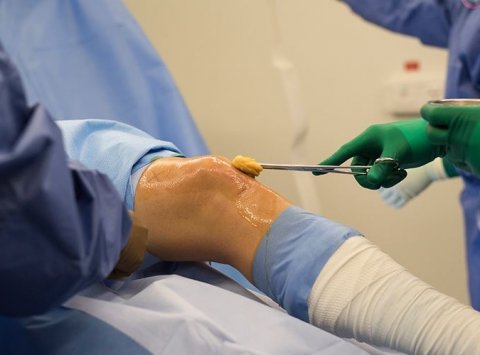
Image source: University of Basel, Christian Flierl
Explaining the amazing properties of the nasal cartilage, Professor Martin says: “Unlike the cartilage tissue in the joints, these cartilage cells originate from precursor cells of the neuroectoderm and therefore have a distinct regenerative and adaptive capacity (plasticity). Tissue grown from nasal cartilage cells seems also to retain these special properties.”
Following the successful trials on animals, the researchers also tested the approach on two young patients suffering from severe osteoarthritis, likely due to misalignment of the leg bones. Their alternative treatment would have been a knee joint prosthesis. Following the implantation of the cartilage engineered from the patients’ own nasal cartilage cells, the two subjects reported a reduction in pain and increased quality of life. In one of the two patients, the researchers were also able to determine via MRI images that the bones in the knee joint were further apart than previously – an indication of the joint’s recovery. With the second patient, they were unable to perform any MRI scans due to travel restrictions during the pandemic, and could only interview him to derive a subjective assessment.
In addition, as the misalignment of the bones in both patients could be surgically corrected and thus the most likely cause of their osteoarthritis eliminated, the researchers are confident that patients will be able to manage without knee joint prostheses, at least for some time. “Our results have enabled us to lay the biological foundation for a therapy, and we are cautiously optimistic” says Martin. This approach will first have to be further assessed for the treatment of patellofemoral osteoarthritis through in-depth clinical trials, for which the team is receiving financial support as part of an Innovation Focus (“Regenerative Surgery”) by the University Hospital of Basel. The researchers also aim to further develop the method for other types of osteoarthritis in order to be able to treat a broader spectrum of patients.
Source: University Hospital Basel
03.09.2021



